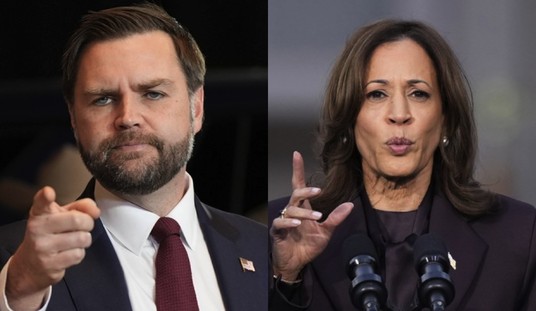Some issues that face us in the tech world get complicated fast, especially when it comes to changing existing Washington regulations. The Internet Radio Fairness Act is one of those messy issues. Please welcome Rep. Marsha Blackburn of Tennessee, who answered some questions for us on that issue.
How would you describe IRFA, the Internet Radio Fairness Act, to a concerned conservative activist?
Conservatives can agree that music distribution companies should be free to choose a business model that makes the most sense for them, and this includes launching legal, digital broadcasting ventures. But the so-called Internet Radio Fairness Act (H.R. 6480) was introduced last Congress to help webcasters like Pandora and radio stations artificially reduce a key input cost – the amount the government says webcasters should pay recording artists for access to their music.
Music distribution businesses naturally want to lower their music costs or keep these input costs as low as possible. To most people that means reducing the price that these businesses would offer to artists under private contracts in the free market, voluntarily negotiated between buyers and sellers. However, when it comes to webcasting and other digital performances of recorded music, the government already forces artists to license to Pandora in a compulsory license scheme that also sets the price for music. Compulsory licensing inhibits the free market from functioning for recording artists. In other words – the government forces artists to give up the rights to their property, and then dictates the price.
The government’s price fixing attempts to recreate what these buyers and sellers would have paid in a private contract. IRFA would expand the government’s role in that price setting by inserting certain assumptions. The problem with IRFA is that it’s not good policy in the first place for the government to make these decisions, and IRFA would further distort prices and create disincentives for artists to create the quality content that consumers demand. In fact, IRFA goes beyond distorting prices and disincentivizing artists by requiring a rate-setting process that attempts to “minimize any disruptive impact” on the industry, thus disingenuously securing Pandora’s monopoly and hindering new competition in the webcasting arena.
Inserting the federal government even deeper into the music licensing process makes our complicated copyright system ever more reliant on special government pricing. Instead we should modernize our copyright laws, reduce government’s role, and preserve private property rights.
IRFA supporters call the idea a necessary change to the rules for fairness. If that’s the case, wouldn’t we be better off simply deregulating, instead of tweaking a system prone to unfairness and obsolescence?
Fairness is in the eye of the beholder. Consider this fact: most radio platforms for music – satellite radio, Internet radio, and cable radio – pay sound performance royalties to copyright holders for their music.
The real problem when it comes to fairness or parity on the distribution side is that terrestrial broadcasters don’t pay artists for sound recordings they use over the air because they are protected by the government through an inverse subsidy that takes away the property rights of creators without compensation. This is an arbitrary digital versus analog distinction that is not followed by anyof our major trading partners.
This decades-old government subsidy has stifled new innovation for far too long. Conservatives and Republicans have long maintained that neither the government nor private individuals should be able take property without compensation. The idea that we have a subsidy for terrestrial broadcasters doesn’t mean we should create another new subsidy for a newer entrant into the music distribution business. It means we should level the playing field in a way that recognizes private property is the bedrock foundation to the health and well-being of our thriving free market.
Instead of further sheltering companies like Pandora, we should let the market find an equilibrium. This means that government should deregulate as much as possible and let the participants negotiate private contracts to the benefit of artists, consumers, innovators, and copyright holders alike.
How should Republicans use this issue to show to young voters what a practical, effective, small government approach looks like?
I think putting this issue in practical terms helps. Consider that under the current framework, the creators of content get about 8 cents per every 1,000 plays of a song on Pandora. That means Lady Antebellum’s 2011 Grammy-winning Song of the Year “Need You Now” resulted in only $5,918.28 for its four songwriters and publishers even though it was streamed about 72 million times on Pandora. IRFA would lower that rate even more. Do you think the free market would say songwriters and publishers of a major song only deserve $0.00008 per play on Pandora?
The fundamental issue in IRFA is government further intruding into private negotiations. Once the government starts trying to recreate what they think the market might do or should do, government will forever be tweaking regulations to get the equilibrium price that the free market could establish if it were truly free. This trial and error approach is a costly endeavor as stakeholders inevitably spend tens of millions of dollars in legal fees and other transaction costs in an endless effort to influence the government’s rates. Those costs can also get passed to consumers, if not directly taken from the original creator. Just because a big company has money to lobby for special benefits doesn’t mean they deserve them.
Republicans are the Great Opportunity Party – we want to incentivize opportunities for everyone and not let government pick winners and losers. Respecting private property rights and the Rule of Law is something that resonates with young people – they want to be incentivized for their creativity. They want certainty and consistency in the rules. If recent history tells us anything, it shows that there is a small gap between government forcing creators to give up their rights at a government mandated price for their labor and government taking away other rights we deserve and cherish.
Government should be seeking ways to reduce its footprint which is why it makes sense to avoid and oppose legislation like IRFA.













Join the conversation as a VIP Member